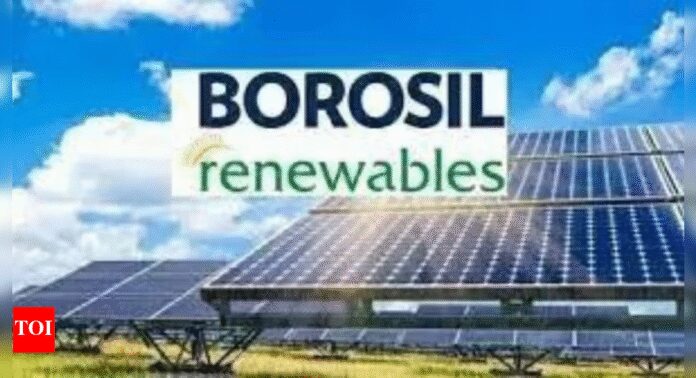Borosil Renewables has moved to exit its German solar glass business, with its step-down subsidiary GMB Glasmanufaktur Brandenburg GmbH filing for insolvency, as the company shifts focus to the fast-growing Indian solar glass market.In a regulatory filing, Borosil said GMB has applied for the commencement of insolvency proceedings before the Insolvency Court in Cottbus, Germany, under the German Insolvency Code (InsO). The decision follows a comprehensive assessment of market viability, strategic priorities, and continued losses caused by plunging demand, PTI reported.“The challenges for GMB began with slide in demand for German made solar panels, when faced with the precipitous drop in prices by Chinese manufacturers of solar panels, who have engaged in large scale dumping in the European market, using predatory pricing,” Borosil said.The company added that despite repeated warnings from German solar module makers, authorities had not taken meaningful protective action. This policy vacuum forced several German manufacturers to shut down or enter insolvency, leading to the collapse of demand for solar glass locally manufactured by GMB.As a result, GMB — once a vital part of Borosil’s global footprint with a 350-tonne-per-day production capacity — reported substantial losses, adversely impacting Borosil’s consolidated financials. Borosil’s total exposure to its German operations stood at €35.3 million, or around Rs 340 crore, as of March 31, 2025.Effective July 4, 2025 — the date of the insolvency filing — Borosil will no longer account for GMB’s monthly losses.Analysts noted that it allows Borosil to stem the capital bleed from a structurally declining market and redirect resources toward its home base in India, where solar power growth is surging.India presents a compelling growth story, one analyst said, quoted PTI citing aggressive solar capacity additions, strong infrastructure demand, and supportive policies such as production-linked incentives (PLI) and the Approved List of Models and Manufacturers (ALMM).India’s solar module manufacturing capacity has already crossed 90 gigawatts and is expected to reach 150 gigawatts by March 2027, creating massive potential for domestic solar glass makers.Borosil aims to double down on its solar glass innovation, manufacturing scale, and ESG-aligned clean energy strategy. In May, it announced a Rs 950 crore investment to expand capacity by 600 tonnes per day by setting up two new furnaces of 300 TPD each — a 60% increase from its current 1,000 TPD base.The recent imposition of a five-year anti-dumping duty on solar glass imports from China and Vietnam, effective December 4, 2024, has created a more level playing field for Indian producers.This has already reflected in improved price realisations: average ex-factory selling prices for solar glass in Q4 FY25 rose to Rs 127.6 per millimetre per square metre from Rs 99.6 a year ago — a 28% jump.With its strategic pivot complete, Borosil is now positioned to consolidate its leadership in India’s solar glass industry amid favourable policy tailwinds and growing market demand.





